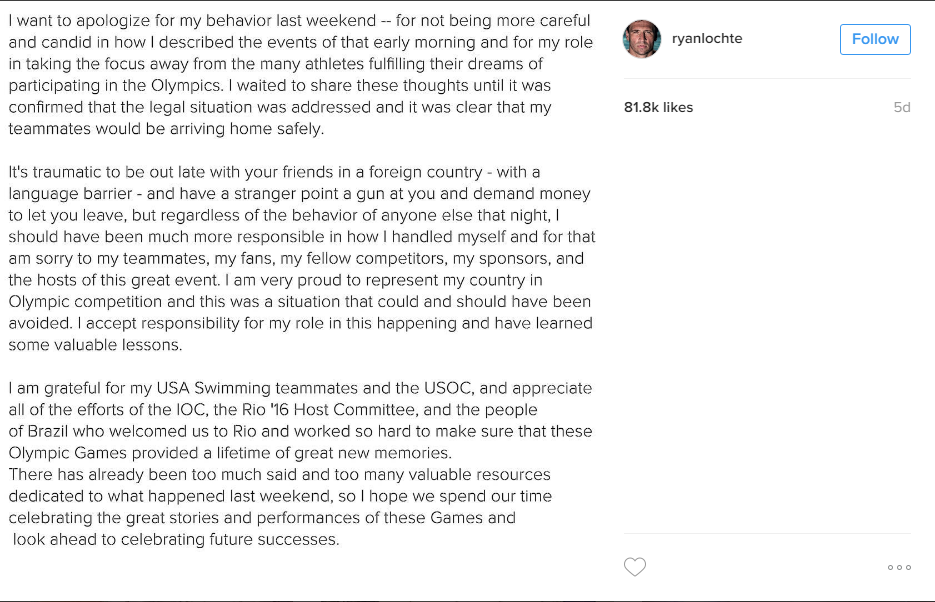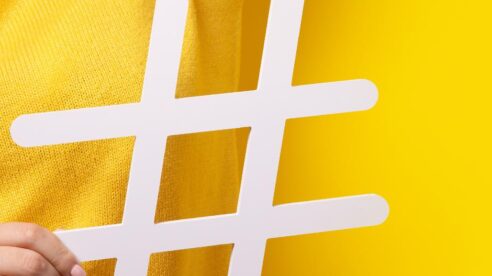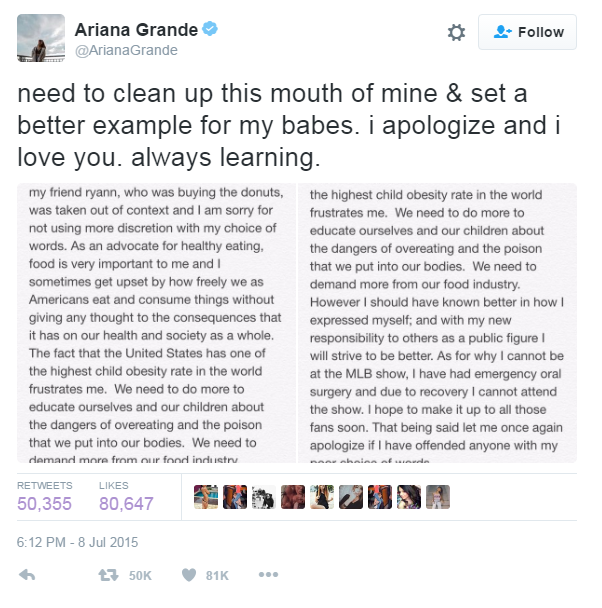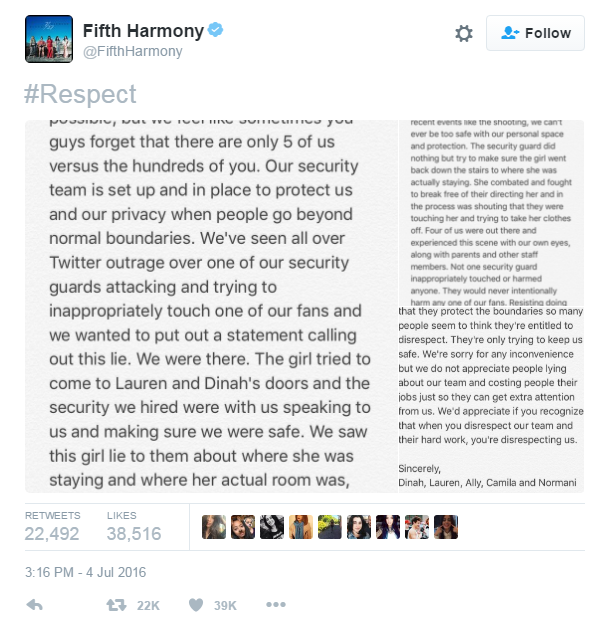The Olympics Games captivate the entire world, providing an honest and genuine attempt to bring hundreds of nations together in symbolic unity. A two-week assortment of athletics, ceremonies, and drama–the storylines that emerge from the Games are unforgettable and momentous, never failing to capture our attention.
And, as public relations professionals, sometimes those headlines are ones we would rather forget.
One of the most talked-about headlines during the Olympics was Ryan Lochte’s fabrication of an armed robbery that he and his fellow USA swimmers faced at a gas station in Rio. Lochte initially claimed that he and three of his teammates were robbed by men with police badges who stole his phone and wallet. After denial from the IOC and the US Olympic Committee, combined with the fact that the details of the incident lacked consistency, Lochte finally decided to come clean, but only after he realized he was caught.
All four of Lochte’s major sponsors – Speedo USA, Ralph Lauren, Gentle Hair Removal and Airweave – dropped the swimmer following the incident. And yet, there may have been one win for Lochte among it all: his exclusive use of social media – specifically Instagram – to address and apologize directly to the public.

Aside from other appearances and statements to the public, the well-decorated Olympian’s Instagram statement allowed him to reach his fans and others, including traditional media, in order to reiterate his mistakes in his own words–no chance for reporters to interpret or filter Lochte’s thoughts, or any loss in translation through paraphrasing. The popular social media outlet enabled Lochte easily to reach the masses, and also mirrored a simple action that is growing in popularity among celebrities–skipping third party filters by becoming the main source of information and controlling the message directly.
From clarifying your profession and subsequent personality…
…to explaining your reasoning behind licking donuts…
…and recounting your side of a sensitive issue.
The power and immediacy of social media is now dominant in today’s culture, and celebrities’ massive followings make it all the more important for them to utilize such a tool.
This isn’t to say every long-form social media statement has been a shining example of an issues management plan in action, and sometimes it can do more damage than good.
Lochte, for example, made an original statement on Instagram which was later deleted as details surrounding his statement were further revealed. He was too quick to speak up, and ultimately had to retract one social media lamentation for another. Lochte is an example of the fine line that can be easily overstepped when addressing sensitive topics publicly. Social media statements can be good, bad, and even ugly – but there is no denying the power of such a direct line of communication.
Lochte is not the first (and will certainly not be the last) celebrity to harness the power of social media as a way to bypass traditional media when making public statements. From apologies to announcements and everything in between, social media (now more than ever) has made it significantly easier for celebrities to address the public at large. When you remove a third party, not only do celebrities’ sentiments become clearer, but it also increases the public’s scrutiny. Above all else, once something is published on the internet, it is there forever – something everyone, not just celebrities, should take note of before speaking their minds, no matter what their message may be.
We are Devine + Partners, communications and content experts who specialize in public relations, issues management and digital communications. Get in touch at resteasy@devinestage.wpengine.com.





